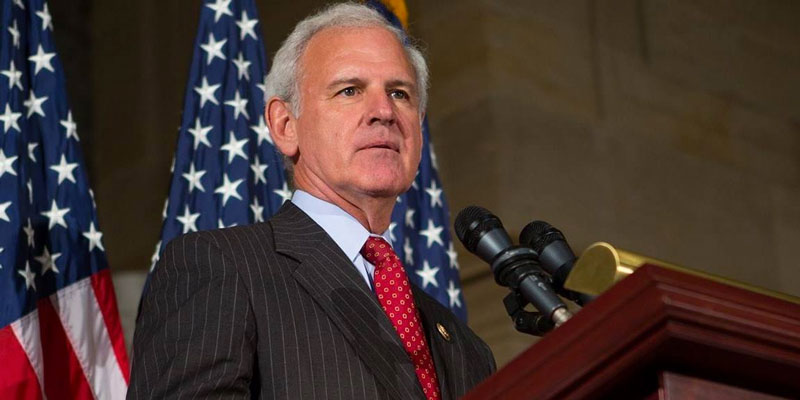With the approaching retirement of U.S. Senator Richard Shelby (R-AL), along with several new faces in Alabama’s congressional delegation, the state’s defense industry and leaders are rightly concerned about the flow of federal dollars running dry in the coming years. However, with a little under two years left of Shelby’s term and the remainder of the Alabama delegation well positioned to cement his legacy securing key defense funding for the state, it is not all doom and gloom.
This is the second of a three-article series covering the top challenges for Alabama’s state and federal leaders to ensure the state’s continued dominance as a defense industry powerhouse. While the first article focused on North Alabama and the effort to maintain U.S. Space Command’s basing in Huntsville, this article will cover the needs of the broadly defined Central Alabama defense industry.
Unlike North Alabama, Central Alabama’s defense equities are spread across a wide geographical area. For the purposes of this article, this area starts northeast of Birmingham at the Anniston Army Depot and runs as far south as Fort Rucker in the Wiregrass. The third article in this series will cover the defense issues of the Alabama Gulf Coast, which is confined to Alabama’s First Congressional District.
Central Alabama’s military and defense footprint, while less concentrated than North Alabama’s, is significant and provides a large economic impact on the state. The main challenges facing this area are consistent workload for the Anniston Army Depot, state and local-level issues that risk continued military investment in and around Montgomery, and maintaining investment and resources for Fort Rucker.
Beginning at Anniston Army Depot, Alabama’s congressional delegation will need to undertake considerable efforts to ensure continued workload for the depot. Depots are used by the Army to maintain and upgrade its equipment to meet warfighter needs and maintain U.S. military readiness. In Anniston, that has included work on critical wheeled and tracked combat vehicles including the M1 Abrams tank and the Stryker combat vehicle. Notably, Anniston Army Depot was charged with outfitting the Army’s combat vehicles with upgraded armor on their hulls to protect occupants from improvised explosive devices, a go-to weapon for insurgents and terrorists attacking American troops in the Middle East over the last two decades.
Depots live and die on the amount of workload sent to them by the Army, sometimes directed by Congress as part of policy or funding bills. When a depot lacks strong workload, it is vulnerable to being closed as part of efforts by the Army and Defense Department to streamline business practices by centralizing its footprint. Lack of workload also opens arsenals, depots and bases to the threat of base realignment and closures, commonly referred to as BRAC, by which the Defense Department systematically combines and closes installations to achieve better efficiency.
To ensure Anniston Army Depot remains safe from BRAC or other efforts to close installations, the Alabama federal representation will need to team up to continue the flow of Army vehicles sent to the depot for maintenance or upgrade.
Alabama is well position to do just that. Shelby will remain the top Republican on the Senate Appropriations Committee and its Defense Subcommittee which approves all funds for the military. His new colleague, Senator Tommy Tuberville (R-AL), secured a coveted position on the Senate Armed Services Committee, which is the chief policy committee for defense and military issues. This combination of policy and funding committee assignments positions Shelby and Tuberville well to complement each other’s efforts to support Anniston Army Depot.
Similarly, Alabama’s representatives in the House are members of both policy and funding committees covering defense. Most of all, Representative Mike Rogers (AL-03), whose district includes Anniston Army Depot, recently became the top Republican on the House Armed Services Committee where he will lead GOP efforts on defense policy. He is joined on that committee by Representatives Mo Brooks (AL-05) and Jerry Carl (AL-01), who will likely be able to provide advocacy and key votes on workload for Anniston.
Additionally, Representative Robert Aderholt (AL-04) holds a powerful position on the House Appropriations Committee and its Defense Subcommittee where, like Shelby, he will be able to influence funding bills for the military.
The second issue facing Central Alabama’s defense industry is not just an issue for federal lawmakers, but also state and local leaders. The Montgomery area is home to a large Air Force presence centered around Maxwell-Gunter Air Force Base, which hosts major training and education facilities. Maxwell is also home to the 100th Fighter Squadron, which descended from the famed Tuskegee Airmen’s “Redtails” squadron and is the future home to a squadron of F-35 stealth fighter aircraft.
However, it is not the military or federal funding that threatens the long-term viability of the Air Force footprint in Montgomery, it is the poor state of the local K-12 education system. Montgomery public schools have a well-documented history of poor academic performance, and Maxwell is ranked No. 150 out of the Air Force’s 154 installations in terms of the local public education quality. If state and local leaders fail to reverse the issues Montgomery schools face, they risk the Air Force deciding to forgo awarding future contracts or programs to Maxwell.
Leaders at the local level and the not-so-distant State House, should move quickly to determine the root causes of the underperforming schools and work to provide the necessary resources and policy changes to remedy the issues. Each passing year this issue goes unsolved, the more likely it is that the Air Force will look elsewhere at the cost of thousands of jobs and more than $1 billion in economic impact in the Montgomery area.
RELATED: Alabama House sends to Ivey’s desk legislation making Alabama more friendly to military families
The third major issue for the Central Alabama defense industry is continued investment for Fort Rucker. With the retirement of former Representative Marth Roby (AL-02), who served on the House Armed Services Committee, and newly elected Representative Barry Moore (AL-02) lacking a seat on that committee, Fort Rucker lost a key supporter at the federal level. Moore can still work with Representatives Rogers and Carl to advocate Fort Rucker’s needs, but the loss of Roby has the delegation fighting with one hand behind its back.
Fort Rucker is the primary training location for the Army’s rotary-wing (helicopter) pilots. This designation requires large swaths of training territory, maintenance funds and investment in emerging technologies to protect the Army’s reputation as the world’s preeminent air assault and rotary transportation force. This has never been more important than now as the Army seeks an eventually replacements for its Blackhawk and Apache helicopters, which will require additional resources at Fort Rucker to field and train Army pilots on the new systems.
Rogers, Moore and Carl, whose combined district residents primarily staff Fort Rucker, will need to work in close coordination with their Senate colleagues to secure Fort Rucker’s continued leadership in these areas.
The Central Alabama defense industry’s future, and that of the entire state, rests in the seniority and numbers of its federal representation on key committees. Shelby and Rogers’ respective leadership roles on the appropriations and armed services committees, combined with Tuberville, Brooks, Carl and Aderholt’s strategic positions in Washington, leave Alabama in a great position to succeed. The challenge will be coordinating the efforts across the delegation to ensure maximum success of their legislative efforts, which can be difficult and uncommon in the politically charged, frantically busy halls of the Capitol and congressional offices.
Jake Proctor is a former intelligence officer at the Defense Intelligence Agency and previously held staff and defense policy positions for U.S. Senators Jeff Sessions (R-AL), Luther Strange (R-AL), and Joni Ernst (R-IA). He is a Birmingham native and graduate of the University of Alabama and the U.S. Air Command and Staff College.













